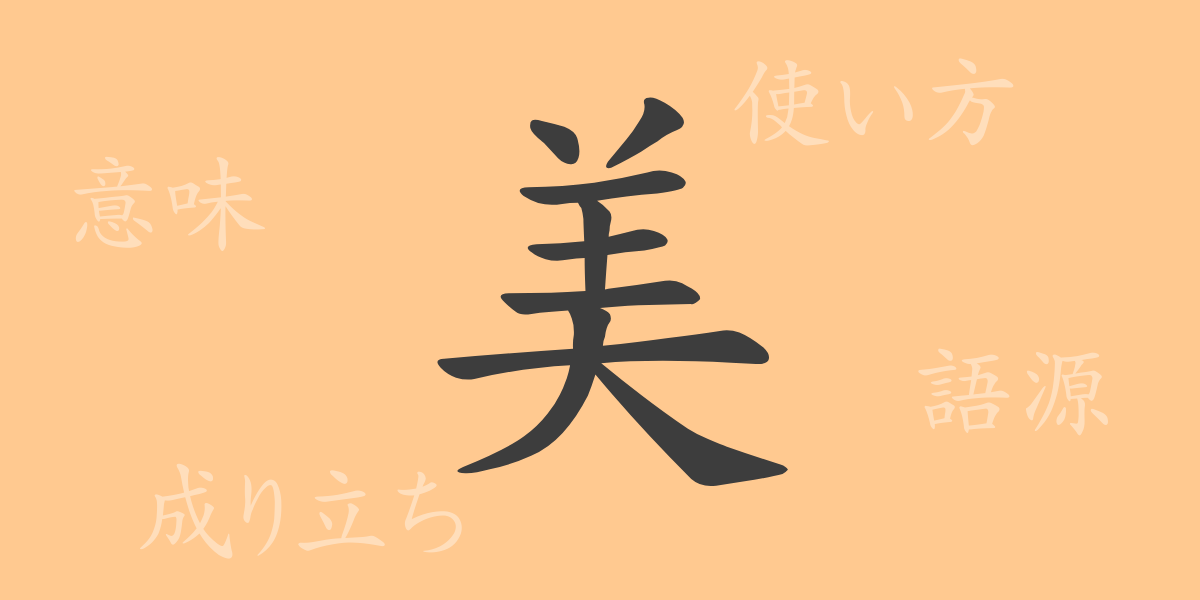In the Japanese language, there is a wealth of words that express emotions and aesthetic sensibilities. Among them, the character “美” (bi) is a commonly used kanji that symbolizes the Japanese sense of beauty and culture, deeply rooted in our daily lives. This article explores the charm of the kanji “美” (bi), delving into its origins and modern usage.
The Origin of “美” (bi)
The kanji “美” (bi) has its origins in ancient China, where it is believed to have evolved from the character “羑” (you), which depicted the act of cherishing sheep. From this act of valuing sheep, the meanings of “good” and “wonderful” emerged. Over time, the character transformed, combining “大” (dai), meaning “large,” with “羊” (you), meaning “sheep,” resulting in the current form “美” (bi). This evolution suggests that the concept of beauty changes with culture and time.
The Meaning and Usage of “美” (bi)
The kanji “美” (bi) means “beautiful,” “good,” and “excellent.” It is used as an adjective to describe various things, including a person’s appearance and inner qualities, natural scenery, and works of art. Additionally, it is used in academic fields such as aesthetics (美学, bigaku) and fine arts (美術, bijutsu). In modern Japan, there is a tendency to value aesthetic qualities, making “美” (bi) an important concept in daily life.
Reading, Stroke Count, and Radical of “美” (bi)
While the kanji “美” (bi) is basic knowledge in Japanese, let’s take a closer look at its details.
- Reading: In On’yomi (音読み), it is read as “bi,” and in Kun’yomi (訓読み), it is read as “utsukushii” (うつくしい).
- Stroke Count: 9 strokes
- Radical: Sheep radical (羊部, hitsujibu)
Compounds, Idioms, and Proverbs Using “美” (bi)
There are numerous compounds, idioms, and proverbs that include the kanji “美” (bi). Here are a few examples:
- 美人 (bijin): A woman who is exceptionally beautiful.
- 美食 (bishoku): The enjoyment of delicious food or cuisine.
- 美術 (bijutsu): The arts enjoyed through visual senses, such as painting, sculpture, and architecture.
- 美談 (bidan): A beautiful story or deed that touches people’s hearts.
- 美辞麗句 (bijireiku): Ornate and beautiful words or expressions.
These compounds and idioms reflect the Japanese culture of appreciating beauty and excellence.
Conclusion on “美” (bi)
The kanji “美” (bi) has evolved in form and meaning over time, but it has always been considered a valuable concept in people’s lives. The admiration and respect for beautiful things are deeply rooted in Japanese language and culture and will continue to be passed down through generations. Through the rich history and diverse expressions of this single character, we can touch upon the essence of beauty.

























